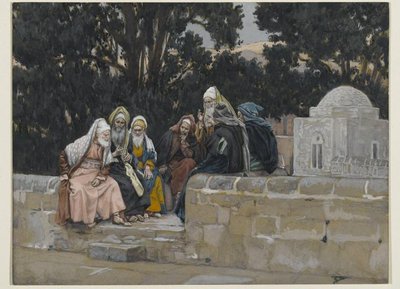Thoughts for the Day
Sunday, 22nd October 2023: Principles not rules
Pharisees Jesus Gospels Matthew 22 Herodians
Reading : Verses from Matthew, Chapter 22

Then the Pharisees went and plotted to entrap Jesus in what he said. So they sent their disciples to him, along with the Herodians, saying, ‘Teacher, we know that you are sincere, and teach the way of God in accordance with truth, and show deference to no one; for you do not regard people with partiality. Tell us, then, what you think. Is it lawful to pay taxes to the emperor, or not?’ But Jesus, aware of their malice, said, ‘Why are you putting me to the test, you hypocrites? Show me the coin used for the tax.’ And they brought him a denarius. Then he said to them, ‘Whose head is this, and whose title?’ They answered, ‘The emperor’s.’ Then he said to them, ‘Give therefore to the emperor the things that are the emperor’s, and to God the things that are God’s.’ When they heard this, they were amazed; and they left him and went away.
(Lectionary, New Revised Standard Version)
Thoughts
Matthew is writing probably sometime between 80 and 90 CE (although there is no consensus about this), which would mean some 10-20 years after the destruction of Jerusalem and the Temple by the Romans. After this the Romans demanded that the half-shekel tax paid by every Jew to the Temple should now be paid to the temple of Jupiter in Rome. This whole issue of tax would have been s hot topic at the time. We have seen before that the people were also having to pay ground tax, income tax, and poll tax, but to have to pay their own Temple tax to a pagan god was a bitter pill to swallow.
The Pharisees and the Herodians loathed each other, but in today's reading we see them come together in all their slimy insincerity to trap Jesus. Whichever was he answers the question he will be in the wrong. He will anger the Romans by saying the people shouldn't pay their tax, or the people by saying they should pay tax to the Romans. But Jesus doesn't lay down rules to be followed. He lays down principles which apply today as much as they did 2,000 years ago! The principle is to pay to the Emperor what is his, and to God what is His.
The Christian is to be both a good Christian obeying God, and a good citizen obeying the state. When these clash we must support God, but not before we have tried all legitimate ways of reconciliation. This means that Christians should be involved at all levels of government and society as 'leaven in the lump'.
Prayer
Lord God,
You have taught us the principle
of being good Christians and good citizens,
which means we need to be involved
in the things of this world
to be able to share the Christian perspective,
whether this is to do with education, politics,
health, or the environment.
May we be strong enough to argue the Christian case,
without becoming dogmatic,
but not shy away from being persistent.
Amen.
You might like to look up this list of when the Gospels and some of the letters (epistles) might have been written. There is no absolute certainty, and some authorities would argue different dates:
This article looks at the Herodians: